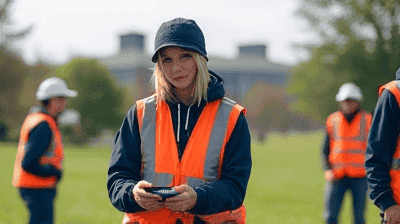
In recent years, the urgent need to address climate change has mobilized communities globally, driving a surge of interest in citizen science. This innovative approach to scientific research harnesses the power of everyday people to collect, analyze, and disseminate data on various environmental issues, including climate change. By engaging non-professionals in data collection and analysis, citizen science projects not only enhance our understanding of climate change but also empower individuals and communities to become active participants in climate mitigation and adaptation efforts.
Citizen science refers to the collaboration between professional scientists and non-scientists in the process of scientific research. This collaboration can take many forms, from simple data collection and observations to more complex projects involving data analysis and interpretation. Citizen science helps bridge the gap between scientific expertise and public engagement, fostering a greater understanding of scientific principles while addressing real-world challenges.
Data Collection: Citizen science expands the capacity for data collection, allowing for larger sample sizes and geographic coverage than would be feasible for professional scientists alone.
Public Engagement: By involving the public in scientific research, citizen science fosters greater interest and understanding of environmental issues, leading to increased advocacy for climate action.
Community Empowerment: Citizen science empowers individuals and communities by equipping them with the knowledge and tools to contribute meaningfully to climate research and decision-making.
Cost-effectiveness: Engaging volunteers in data collection reduces research costs, making it more feasible to conduct studies on pressing environmental issues.
Local Knowledge: Citizen scientists often possess valuable local knowledge and context, which can enhance research outcomes and inform targeted interventions.

Citizen science projects related to climate change typically focus on several key areas:
Weather Monitoring: Volunteers collect local weather data, including temperature, precipitation, and humidity, helping to build a more detailed understanding of regional climate patterns.
Biodiversity Assessment: Citizen scientists monitor species populations and distributions, providing critical data on how climate change affects biodiversity and ecosystems.
Phenology Studies: Observing the timing of natural events, such as flowering, migration, and fruiting, helps scientists understand the impacts of climate change on seasonal cycles.
Air and Water Quality Monitoring: Citizen-driven initiatives measure pollutants and other indicators of environmental health, contributing to a clearer picture of how climate change influences air and water quality.
Carbon Emission Tracking: Some projects focus on quantifying carbon emissions from local sources, providing valuable data for carbon reduction efforts.
CoCoRaHS (Community Collaborative Rain, Hail, and Snow Network): This network allows volunteers to measure and report precipitation using standardized rain gauges. The data collected contributes to weather forecasts, hydrology research, and climate modeling.
iNaturalist: This platform enables individuals to document and share observations of flora and fauna using mobile devices. The collected data contribute to biodiversity assessments and can help scientists track how species distribution changes in response to climate change.
Project BudBurst: This initiative focuses on phenology by asking citizen scientists to observe and report the timing of plant flowering and leafing. The data contribute to understanding how climate change impacts growing seasons and plant behavior.
Earthwatch: Various citizen science programs organized by Earthwatch engage volunteers in research related to climate change, including biodiversity assessments and ecosystem monitoring.
Globe at Night: This program invites participants to measure light pollution through simple observations of stars. The data collected helps to shed light on the impacts of urbanization and climate change on the night sky.
Citizen science projects often employ a variety of methodologies to ensure data quality and reliability:
Standardized Protocols: Many citizen science projects provide clear, standardized protocols for data collection, ensuring consistency across multiple locations and participants.
Training and Education: Participants often receive training and educational resources to enhance their understanding of scientific methods and the specific goals of the project.
Data Validation: Some projects incorporate validation processes, where professional scientists review and verify the accuracy of volunteer-collected data.
Technology Utilization: The use of mobile apps, websites, and social media facilitates data submission and enhances participant engagement, providing real-time feedback and information.
Collaboration with Scientists: Close collaboration between citizen scientists and research institutions ensures that data collected is relevant, scientifically sound, and useful for ongoing research efforts.
The NPN is a collaboration between scientists and volunteers focused on monitoring the timing of biological events in plants and animals. The initiative engages citizen scientists in reporting observations related to seasonal changes. By documenting phenology shifts, this project helps researchers understand the impacts of climate change on ecosystems and biodiversity.
ClimateKids, developed by the NASA Earth Science Division, is an educational platform designed to engage children in climate science. Through interactive games and activities, children and their families collect data related to climate change. Engaging younger generations helps foster a deeper understanding of environmental issues and the importance of climate data collection.
The CCL is a grassroots organization that empowers citizens to advocate for effective climate policies. While not a traditional citizen science project, it emphasizes the critical role of engaged citizens in data-driven advocacy for climate action. Members gather and analyze climate-related data to inform their discussions with policymakers.
Weather Underground is a volunteer network of weather enthusiasts who share real-time weather data from personal weather stations. This crowd-sourced data contributes to local weather forecasting and serves as a valuable resource for climate researchers.
The Ocean Conservancy involves volunteers in collecting data on plastic pollution through beach clean-ups. Participants log the types and quantities of debris collected, providing essential data for understanding the impacts of pollution on marine ecosystems and informing conservation strategies.

Citizen science initiatives have significantly improved the availability of climate-related data, addressing important gaps in research. Volunteers can collect data from diverse locations that may not otherwise be monitored, enriching datasets that inform climate models and predictions. This increase in data contributes to a more comprehensive understanding of climate change patterns and effects.
Citizen science fosters collaboration between scientists and the public, breaking down barriers to scientific knowledge. By empowering individuals to participate in research, citizen science creates a more informed society that is better equipped to advocate for meaningful climate action. This engagement strengthens community resilience and promotes public support for environmental policies.
The data collected by citizen scientists can directly influence policy decisions related to climate change. Decision-makers increasingly consider citizen science data when assessing risks, setting regulations, and developing climate action strategies. The integration of local knowledge and perspectives ensures more holistic and effective policy responses to climate challenges.
Citizen science initiatives often catalyze community engagement and collaboration. By bringing people together to work on climate-related projects, these initiatives foster social cohesion and resilience. Engaged communities are better equipped to identify local climate impacts and develop targeted solutions.
Citizen science serves as a powerful educational tool, raising awareness about climate change and the scientific process. Participants gain hands-on experience in data collection, analysis, and reporting, enhancing their understanding of environmental issues. This educational aspect fosters a culture of stewardship and responsibility towards the planet.
One of the primary challenges for citizen science is ensuring the quality and reliability of the data collected. Variability in participant skill levels and adherence to protocols can introduce inaccuracies. To mitigate these concerns, projects must implement stringent data validation measures and provide thorough training and support for volunteers.
Sustaining participant interest over the long term can be challenging, especially for projects that require ongoing commitment. Strategies to maintain engagement include providing regular updates on the project's impact, offering recognition and incentives, and cultivating a community among participants.
With the involvement of non-professionals in scientific research, ethical considerations must be addressed. Ensuring informed consent, data privacy, and respect for local ecosystems and communities is crucial for maintaining trust and integrity in citizen science initiatives.
Many citizen science projects rely on external funding and resources to sustain their operations. Securing financial support can be challenging, and projects must demonstrate their relevance and potential impacts to attract funding from government agencies, foundations, or businesses.

The proliferation of technology and mobile applications will continue to enhance citizen science efforts. Initiatives that leverage GPS, remote sensing, and social media can provide new opportunities for data collection, analysis, and collaboration. As technology evolves, the potential for citizen scientists to contribute valuable insights into climate change will only grow.
Collaborative efforts between scientists, educational institutions, NGOs, and community organizations will enhance the effectiveness and reach of citizen science projects. Expanding these partnerships can increase resources, amplify impacts, and foster a more comprehensive approach to climate challenges.
Future citizen science efforts should emphasize inclusivity, actively engaging diverse communities and marginalized groups. Ensuring that all voices are heard in the climate conversation will enrich research outcomes and promote social equity in climate action.
As citizen science data gains recognition, citizen scientists can play a critical role in advocating for climate action at local, national, and global levels. By providing evidence-based recommendations and participating in dialogue with policymakers, citizen scientists can influence climate policy and foster systemic change.
Citizen science represents a powerful tool in the fight against climate change, harnessing the knowledge, skills, and passion of everyday people to contribute to climate data collection. Through collaboration between scientists and the public, citizen science initiatives enhance our understanding of climate patterns and impacts while fostering community engagement and resilience.
By continuing to support citizen science projects and expanding their scope and inclusivity, we can empower individuals and communities to play a vital role in climate mitigation and adaptation. As we face the growing challenges of climate change, citizen science provides a pathway to not only gather essential data but also inspire collective action for a more sustainable future.